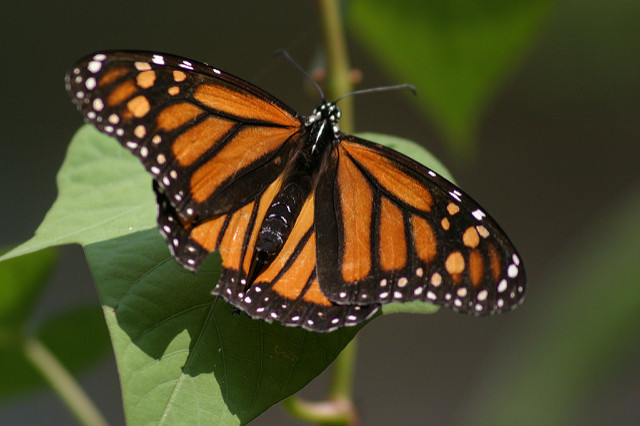A new lawsuit claims that crops genetically engineered to withstand glyphosate herbicides is responsible for the decline of monarch butterflies.
As detailed in a press release last month, the Center for Food Safety and the Center for Biological Diversity filed suit against the U.S. Fish and Wildlife Service claiming the agency failed to protect monarch butterflies under the Endangered Species Act. The two groups petitioned the Service in August 2014 to protect the monarch as a “threatened” species following a 90 percent population decline over the preceding two decades. In December 2014, the U.S. Fish and Wildlife Service agreed scientific evidence suggests such a listing is warranted. However, the agency has not arrived at a final conclusion within 12 months as required by the Endangered Species Act. The lawsuit requests that the court set a deadline for that decision.
Per Capitalpress, the plaintiffs contend widespread spraying of glyphosate has eliminated a lot of the monarch’s milkweed habitat, sparking a 90 percent population decline since the 1990s. While farmers sprayed for milkweed prior to the commercialization of genetically engineered crops, environmentalists say that glyphosate is more effective at killing the plant’s roots that prevent it from regenerating.
Chicago public television reports that adult monarchs will only lay eggs on milkweed and the plant is the sole food source for monarch caterpillar larvae. The plant also offers protection as caterpillars ingest a toxic steroid from milkweed that birds and mice find distasteful. “It’s a very unique relationship between the monarch and the milkweed,” said Boyce Tankersley, director of living plant documentation at the Chicago Botanic Garden. “The pollen and nectar from the flowers are also utilized by adult butterflies to provide energy and nutrition as they migrate south towards Mexico and then back again north.”
Biotech supporters believe an emphasis on monarch butterflies signals that opponents of genetic engineering may continue to utilize the Endangered Species Act when filing lawsuits.
A copy of the Center for Food Safety’s complaint is available here.
